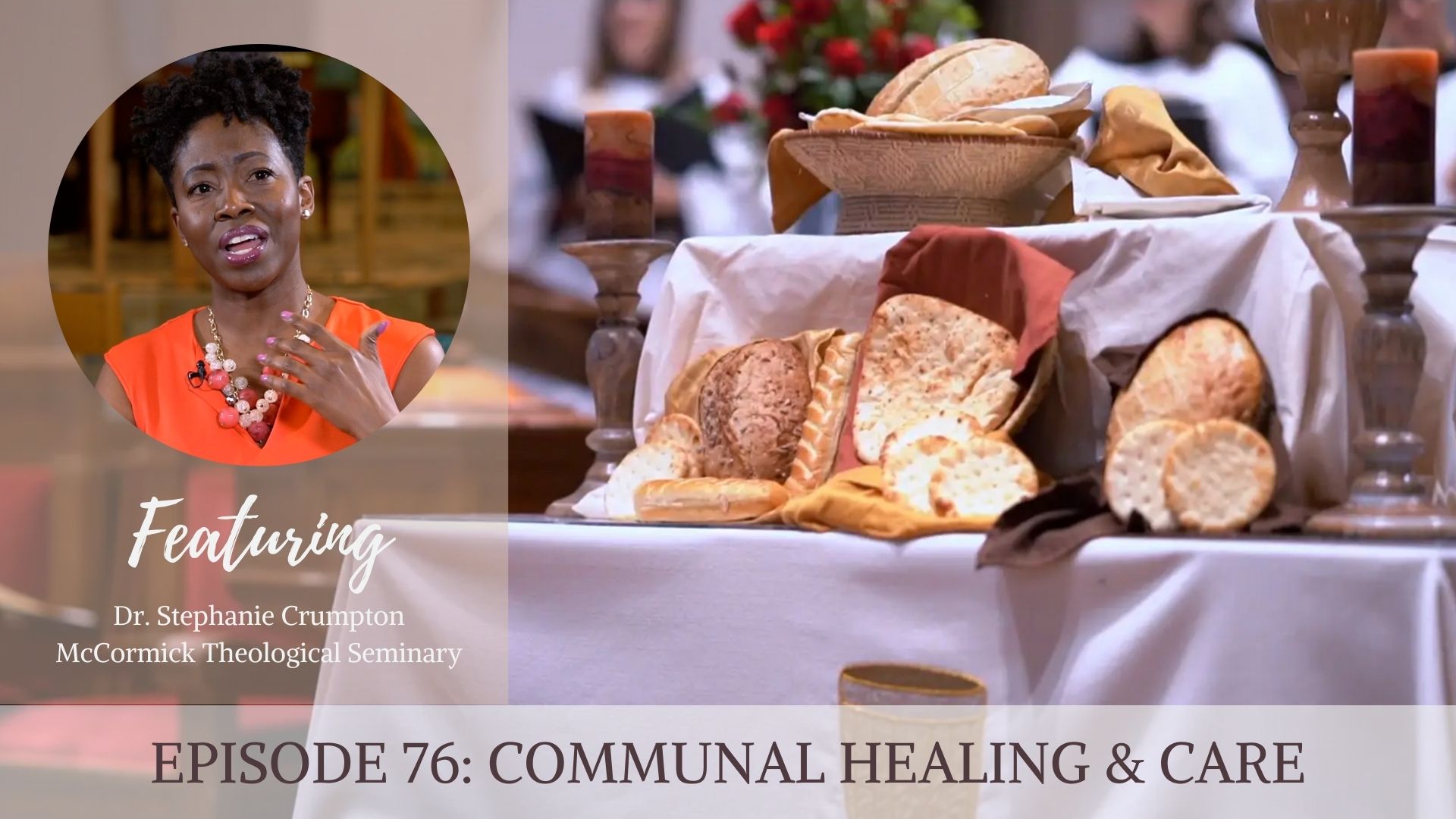This week we continue our conversation with Dr. Stephanie Crumpton about caring for girls and women who have experienced violence. Earlier we talked about the complexity and intentionality of care, particularly for Black women and girls. Our focus today is on how communities of faith can put their concerns for healing into practice.
I asked Dr. Crumpton: What have you seen religious communities do well toward participating in healing for women and girls who have experienced violence?
She has sound and clear advice, starting with the church’s most visible public space, the Sunday morning pulpit.
Sunday Morning Worship and Preaching
Although preaching “bears the burden of engendering hope,” says Dr. Stephanie Crumpton, yet nothing is more powerful than standing in the pulpit and saying directly, “This violence is wrong!” Many biblical stories cannot simply be “read with the narrator” but need to be confronted as problematic. For example the story of the rape of Dina, the daughter of Leah, or the story of the rape of Tamar by her brother Amnon, are texts that can and should be opportunities to speak against violence that is visited on women and girls.
Two recent books on preaching and justice for Black lives address violence in a direct and powerful way.
Preaching Prophetic Care: Building Bridges to Justice is a book of sermons and essays contributed in honor of the late Dale Andrews, professor of preaching and practical theology at Vanderbilt Divinity School. The book is edited by Phillis Isabella Sheppard,
Preaching Black Lives (Matter) is edited by Gayle Fisher-Stewart and published by Church Publishing Incorporated. The book includes over 40 sermons and essays, many by notable Episcopal preachers and theological educators. Unavoidably, many of the sermons confront violence head on.
The work of healing does not stop with the sermon. It infuses every part of the faith community’s life together. “It takes some work,” says Dr. Crumpton. For example, what about the altar call, or the mid-week Bible study? Watch this weeks video and see what Dr. Crumpton has to advise.
Resources for Pastoral Care and Healing Conversations
When Dr. Crumpton notes that “people in our guild are writing about violence against women.” They are important conversation partners in healing. The guild she refers to is the Society for Pastoral Theology. Intimate partner violence and violence against women and children, are regular topics of books and articles by pastoral theologians. We want to share a few of those resources here, ones that can equip you in this complex, rigorous, pastoral and communal work.
Earlier this summer we introduced Dr. Stephanie Crumpton‘s 2014 book, A Womanist Pastoral Theology Against Intimate and Cultural Violence. What she has to offer leads us to a nuanced understanding the care of Black women and girls. In our conversation about the sacred and rigorous care of Black girls and women, Dr. Crumpton and I talked about the double binds faced by both the survivors of violence and the churches and ministries commit to their care and healing.
More wisdom from Dr. Stephanie Crumpton this week about how faith communities can practice care for women and girls who have survived violence. #practiceofministry #3mmm @McCormickSem https://t.co/GVDb74UwQn pic.twitter.com/L28VB7Gdjq
— Three Minute Ministry Mentor (@3MinuteMin) July 27, 2020
When I teach the introduction to pastoral care course I asked students to read Carrie Doehring’s The Practice of Pastoral Care. She takes seriously both grief and violence as major moments that call for pastoral care. Her book includes sturdy practices for listening, self reflection and staying present to people in our care, helping us to be better caregivers.
One of the earliest, and recently revised, books on intimate partner violence is by pastoral theologian and colleague, Pamela Cooper-White. The Cry of Tamar examines many forms of violence against women and urges faith communities to respond with care and justice. This text is a classic in our guild for understanding the complex and urgent topic of violence.
++++++++
If you are seeking to build your library with resources to support care-givers committed to healing from violence, we also recommend:
+Pastoral theologian, Jeanne Hoeft, in her book Agency, Culture, and Human Personhood: Pastoral Thelogy and Intimate Partner Violence asks about how violence contributes to shaping human agency. Agency is gathers up the ways we act, assert ourselves, and resist that which harms. Hoeft believes we must take care with the ways we understand agency so that we can “foster in victims, perpetrators, and congregations more resistance to violence.”
+Shelley Rambo’s Spirit and Trauma: A Theology of Remaining is a classic theological exploration that reconsiders redemption after trauma.
+In her now classic text, Battered Love: Marriage, Sex and Violence in the Hebrew Prophets, Renita Weems questions the associations we make in the contemporary church between violence and God.
+The Faith Trust Institute has been addressing cultural and intimate violence for decades and has a broad shelf of resources.
+Also watch for a new volume coming this fall and edited by Angella Son, Pastoral Care in a Korean American Context gives us fresh takes on addressing intimate violence, depression, racism, pastoral wisdom, addiction, and more. The book spotlights the experiences and voices of Korean and Korean American people. But check your own racist assumptions, because this book is absolutely for use in every pastoral care classroom! It will also support religious communities seeking to care for women and girls who are survivors of violence.





